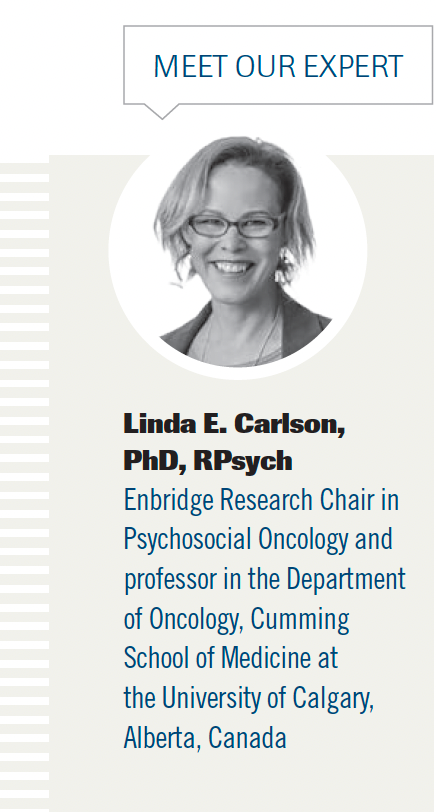
Integrative therapies have been proven to be effective in reducing the adverse effects (AEs) of anxiety and depression in cancer patients, as explained by Linda E. Carlson, PhD, RPsych, the Enbridge Research Chair in Psychosocial Oncology at the University of Calgary, Alberta, Canada. In a recent interview, Carlson discussed how mindfulness-based interventions, yoga, and relaxation techniques can help manage anxiety and depression in cancer patients, as highlighted in the new recommendations published by the Society for Integrative Oncology (SIO) in collaboration with the American Society of Clinical Oncology (ASCO).
Carlson, who is a past president of SIO and an editorial advisory board member of ONCOLOGY, emphasized the importance of evidence-based treatments for anxiety and depression in cancer patients. She noted that integrative therapies such as mind-body techniques, natural health products, physical therapies, and acupuncture have shown promising results in addressing these burdensome AEs. The guidelines developed by a panel of experts from various disciplines provide recommendations on the use of these integrative approaches in managing anxiety and depression in cancer patients.
One of the strongest recommendations mentioned by Carlson is mindfulness-based interventions, which have been found to be effective in reducing anxiety and depression both during and after cancer treatment. Other recommendations include yoga, relaxation techniques, hypnosis, music therapy, reflexology, and tai chi interventions. Carlson emphasized the importance of clinicians being aware of these options and facilitating access to integrative therapies for their patients.
Carlson also highlighted the increasing popularity of integrative approaches among cancer patients, with data showing that half of them have used some form of complementary therapy. As more evidence of the effectiveness of these therapies emerges, their utilization is expected to grow even further.
Looking ahead, Carlson discussed the need for more research on integrative practices for anxiety and depression in cancer patients. She mentioned that there are several therapies of interest, such as massage, light therapy, energy therapies, and dietary supplements, that require further investigation. Additionally, diversifying research to include different cancer types, populations, and community settings will be crucial for advancing the field of integrative oncology.
In conclusion, Carlson emphasized the role of patients in advocating for access to integrative therapies and improving their quality of life during and after cancer treatment. By leveraging evidence-based recommendations and collaborating with healthcare providers, cancer patients can enhance their overall well-being and advocate for a holistic approach to cancer care.


